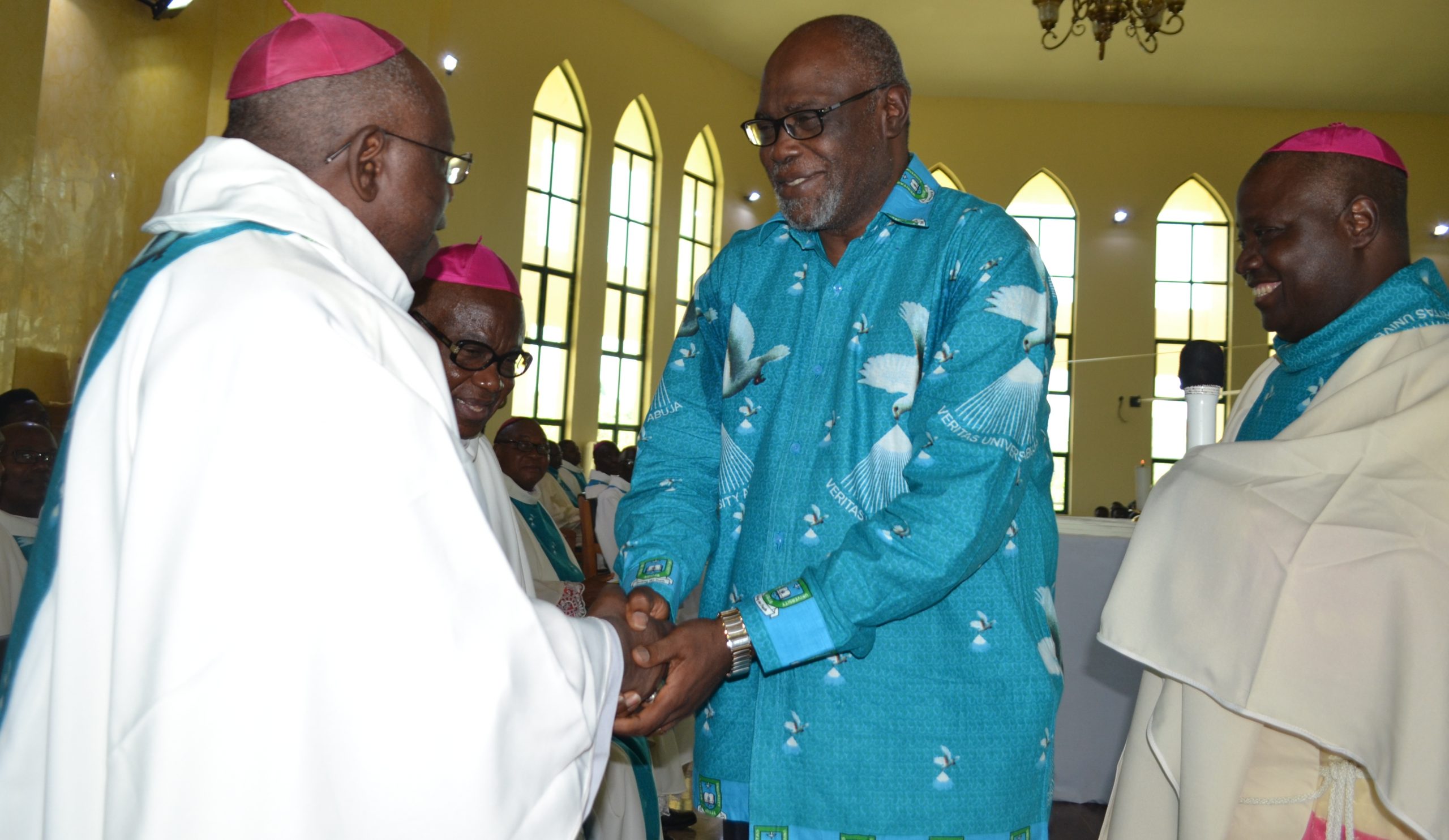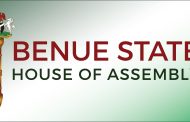It is only when one runs into him as happened earlier today, (February 9th, 2022) on one’s way to the university’s weekly community mass that it hits one that he is very much around on the campus. On such occasions, his physical stature gives him a heightened presence that, along with other factors, compels one’s journalistic antennae to come alive even if briefly. Why not when it is not very common in Northern Nigeria for former Vice-Chancellors, academic staff who served as ministers or high state officials or who got into the UN family, for example, to return to the campus.
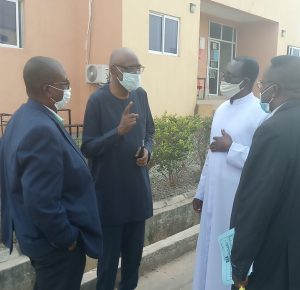
Prof Kwanashie in conversation with senior academics shortly after his return to Veritas University in February 2021
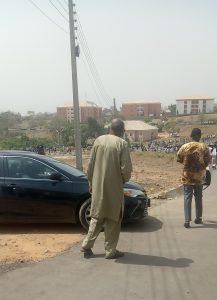
Prof Kwanashie marches away after attending church service February 9th, 2022
Except Bayero University, Kano, it is not the culture. There, it is an emerging tradition to the extent that Prof Dandatti Abdulkadir is there, Prof Musa Abdullahi remained on the campus after his tenure before his death and Prof Attahiru Jega is very much back to his “Political Economy of Africa”, a course he must be teaching even better now after serving as Vice-Chancellor and Chairman of the Independent National Electoral Commission, (INEC).
Apart from Prof Kabir Chafe who returned to the Dept. of History after serving as Oil Minister, this is still a dry culture at the Ahmadu Bello University, Zaria, for example and ABU is the leading centre for intellectual reflection in the North. Perhaps, there are such returnees in the Faculty of Medicine, Agriculture, Architecture, Veterinary Medicine and Pharmacy that one cannot recall immediately.
The ABU, Zaria example contrasts with the situation at the University of Ibadan, for instance. There, it is not uncommon to find former consultants to UN bodies, former ministers and former VCs returning to the campus to continue from where they stopped. One outcome is that students of such a university have a rich reservoir of referee writers, for one. That is not to mention the disciplinary presence such returnees embody on account of academic authority, empirical details and interpretive verve. The best example in this regard would continue to be that of Prof Takena Tamuno, a former Vice-Chancellor of the university and one of the warriors of the ‘Ibadan School of History’ presenting three books in 2012 on UI campus, barely three years to his death in 2015. It was, indeed, a spectacle beholding Prof Olawale Albert, UI ace scholar of Peace and Conflict Studies, who was probably not in the secondary school when Tamuno was VC, serving as the book reviewer. Wonders of the ways of knowledge!
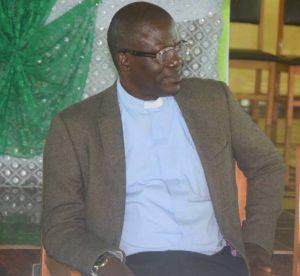
Incumbent VC, Prof Hyacinth Ichoku
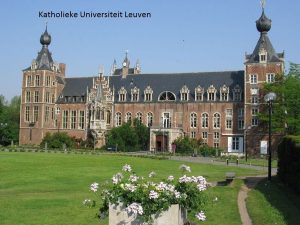
The oldest Catholic University in the world, now over 600 years, one of the top 50 universities in global ranking
This background makes Prof Mike Kwanashie’s presence on the campus of Veritas University, Abuja an event worth returning to every now and then, both for the young university and for the growth of that culture in the region where it finds itself by location. The academic height that Catholic universities across the United States, Australia, Belgium, Brazil and Kenya have set makes it a challenge for younger ones from a country such as Nigeria to excel rather than lower the gaze. And one way they can rise to the challenge is the quality of mentoring which is a function of the quality of exposure of the key resource persons. Nigeria’s share of subtle resistance to educational merit in favour of instant money making practices and unearned fame means that only multiple angles to knowledge delivery –interactive, persuasive, dictatorial, punitive, ‘sage on stage’ and supervision of same –might save the situation, making the presence of the oldies an imperative. They have mastered or conquered most of life’s challenges and are, therefore, more stable and less and less prone to desperate manoeuvres.
In any case, the Kwanashie generation is still the lodestar in the history of university education in Nigeria. Members of that generation attended universities in Nigeria when these universities were of world class standing. And then went to some of the toughest campuses in the Western world for graduate studies. It cannot become boring to report that Prof Kwanashie obtained a First Class status in Economics at ABU of those days before going out. And in doing so, he went to, amongst others, McGill University in Canada. Today, McGill University is among a new set of universities setting the global agenda in theorizing the world and in problem solving. A very casual list of that emergent club would include the University of Sydney, the University of British Columbia, King’s College London, the University of Melbourne, the University of St Andrews, the University of Copenhagen, the Katholieke Universiteit @ Leuven in Belgium, aka Ku Leuven, the University of Essex. They stand apart from the traditional pacesetters such as Oxford, Harvard, Yale, Cambridge, University College London, Imperial College London, the University of Chicago, the University of Edinburgh, the University of Toronto, again, a very casual listing.

Where are they now? Some faces of activists of the National Association of Political Science Students, (NAPSS) during his time
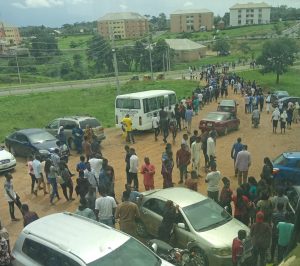
An angle on the campus a few years back
So, Kwanashie has pedigree, given that, aside from a solid academic base, he also served in government before becoming the Vice-Chancellor of Veritas University. As Vice-Chancellor, it is impossible that he ran an error-free tenure but whatever his errors might have been, they could not have been on account of ignorance or crisis of fragile ego.
Comparatively speaking, Veritas University, Abuja has been lucky with Vice-Chancellors. Prof David Ker whom Kwanashie succeeded is generally reckoned with as a melted human being and a world class scholar, even if only with his 1997 flagship publication, The African Novel and the Modernist Tradition. Currently, Hyacinth Ichoku, a Professor of Economics from the University of Nigeria, Nsukka, is the Vice-Chancellor. He is of a much younger generation than that of the Kwanashies but he too obtained his PhD from outside the country, precisely Africa’s best university today, going by global ranking – the University of Cape Town.
It would be very interesting if Prof Ichoku stays back after his tenure. Surely, the seminars would become more interesting because he has a certain way of taking off from theological reasoning to weave a sharp social analysis that can set a listener thinking. It doesn’t matter that the students call him ‘Lord Lugard’ at his back because of his no nonsense approach to indiscipline. The name of the first Vice-Chancellor before Prof Ker took over escapes immediate remembrance.
There is a sense in which this succession of Vice-Chancellors with pedigree is a good omen for a university that is, in every ways, comparable to the only son in John Munoye’s novel of that title. Veritas University, Abuja is an only son in its collective ownership by the Catholic establishment in the country. An only son cannot be a spoilt child. To achieve that, his grooming must be tough, a huge part of that being to make it clear that this is neither a seminary nor a reformatory but a university. Only Vice-Chancellors who are well heeled in the mandate of knowledge can deliver such message just as there might be no better way of reinforcing the message than the continuing presence of those who have had the opportunity of serving the university as its Vice-Chancellors at one point in time. There lies the news in the active but subtle presence of Prof Mike Kwanashie at Veritas University today, a process that speaks to continuity in a different sense!

